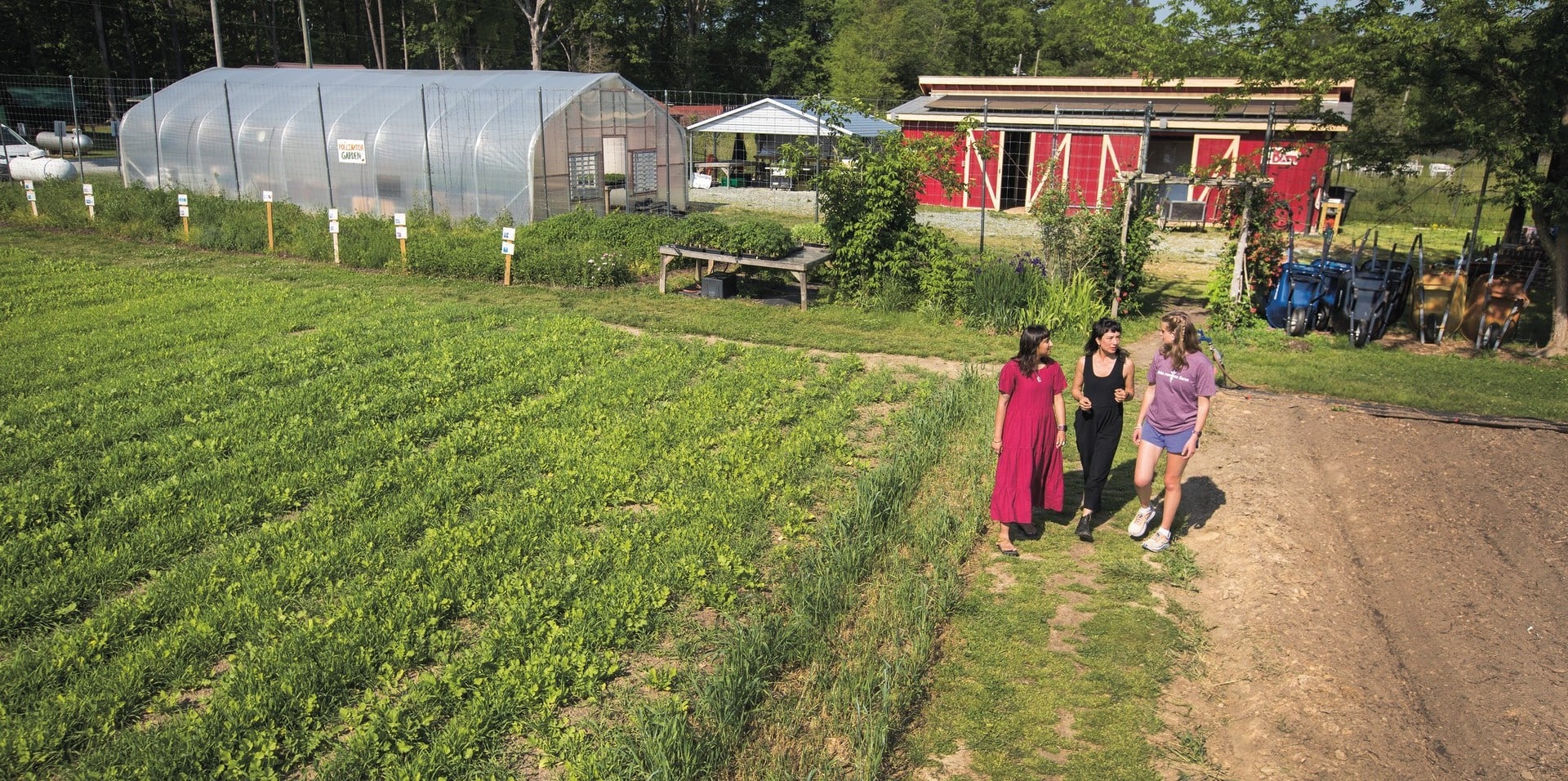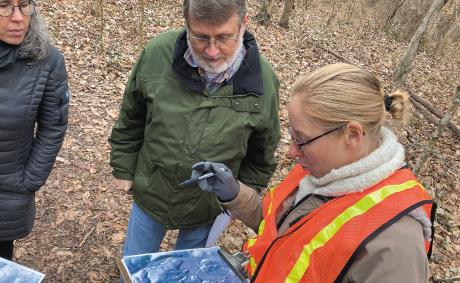It couldn’t have been a nicer day.
OK, it was a little breezy, but the sun was shining on freshly planted rows at Duke Campus Farm. Across the field and through the trees, children played and shouted at Carolina Friends School. A closer look, though, would reveal signs that something wasn’t right. Fruit trees had bloomed early, missed their pollinators, and suffered the one-two punch of heavy rains followed by frost. Pests and diseases had survived a too-warm winter, which could spell trouble for crops. Still, it was a beautiful day – not at all the picture movies and novels paint of the apocalypse, offered Saskia Cornes.
“[Climate change] is not going to be a one-time event that we are caught up in that will then be over, and there will be an aftermath,” she explained. “It is happening now and it will be ongoing for the rest of our lives and well beyond.”
“The default mode of a typical young person in America is that climate change is really tricky and hard. It’s really depressing, and unless I’m a scientist or engineer I have nothing to offer. I don’t know enough about it. We just wanted to bust that wide open.”
Emily Bernhardt
Cornes, program director at the Campus Farm and assistant professor of the practice of Duke’s John Hope Franklin Humanities Institute, was one of 14 Climate Change Faculty Fellows in 2022’s inaugural section of UNIV102: Let’s Talk About Climate Change. By design, fellows represented all corners of the university, from esteemed political scientists (Nick Carnes) to chemists (Jie Liu) to English professors (Priscilla Wald). The idea behind Duke’s second university-wide course, said co-leads Norman Wirzba, Gilbert T. Rowe Distinguished Professor of Christian Theology, and Emily Bernhardt, James B. Duke Professor of Biogeochemistry, was to make the point that anyone, from any field, can play a positive role in the era of climate change.
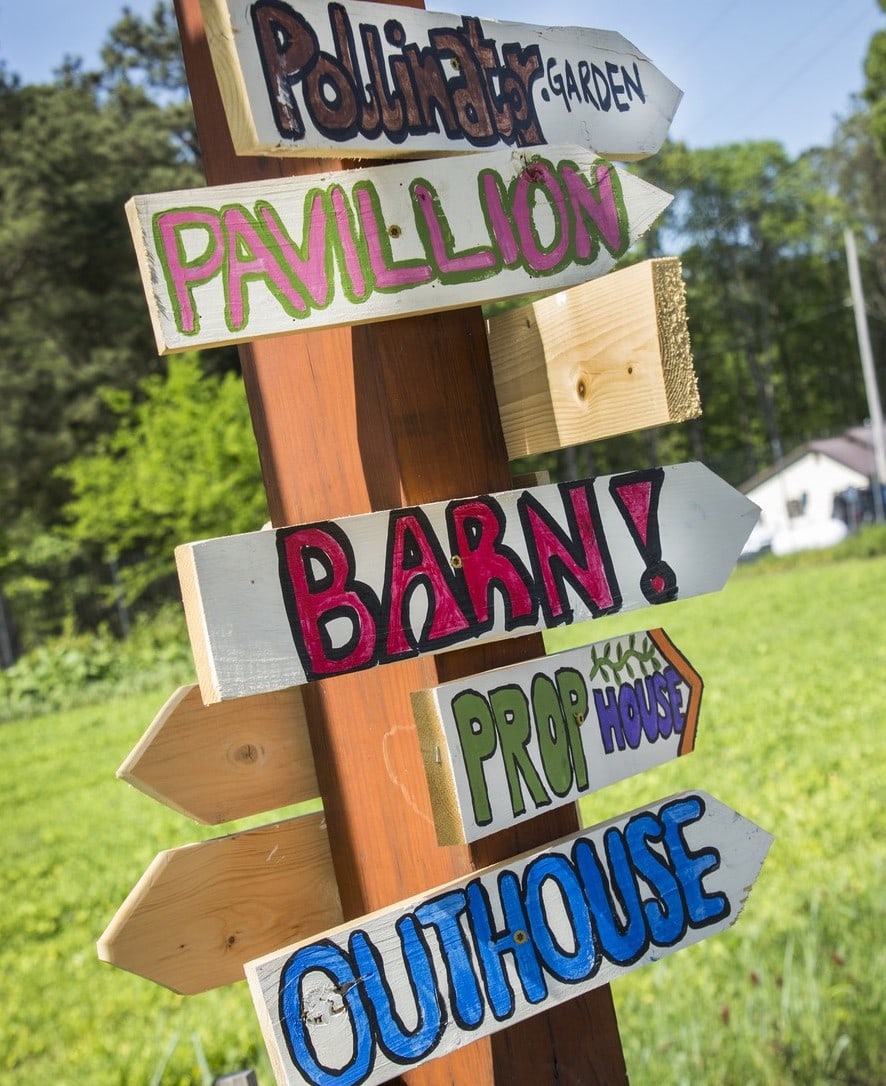
Course designers hoped UNIV102 would plant the science of climate change in its human context. The aim was to replace students’ hopelessness with climate fluency and the will to pitch in, whatever their major.
“The default mode of a typical young person in America is that climate change is really tricky and hard,” said Bernhardt. “It’s really depressing, and unless I’m a scientist or engineer I have nothing to offer. I don’t know enough about it. We just wanted to bust that wide open.”
Climate change is not just an engineering and natural science issue, Wirzba explained. It is philosophical – it’s personal – and deep questions about the meaning of life pervade conversations about this existential threat. Students need climate fluency to hold their own in these conversations. During UNIV102, the class played Climate Fresk, a card game that teaches players the findings of the Intergovernmental Panel on Climate Change. Additionally, Bernhardt and Wirzba modeled talking about climate change in panel-style discussions with faculty fellows.
Historian Adriane Lentz-Smith and hydrologist Ryan Emanuel, who are experts in African American history and indigenous rights, respectively, spoke on equity issues and historical injustices. At one point, Bernhardt recalls, Language Outreach Initiative director Deb Reisinger told the class, “Sometimes the most important thing you can do is just sit with a problem, in all its complexity.” This is a valuable humanities perspective, Bernhardt said, which doesn’t come naturally to scientists.
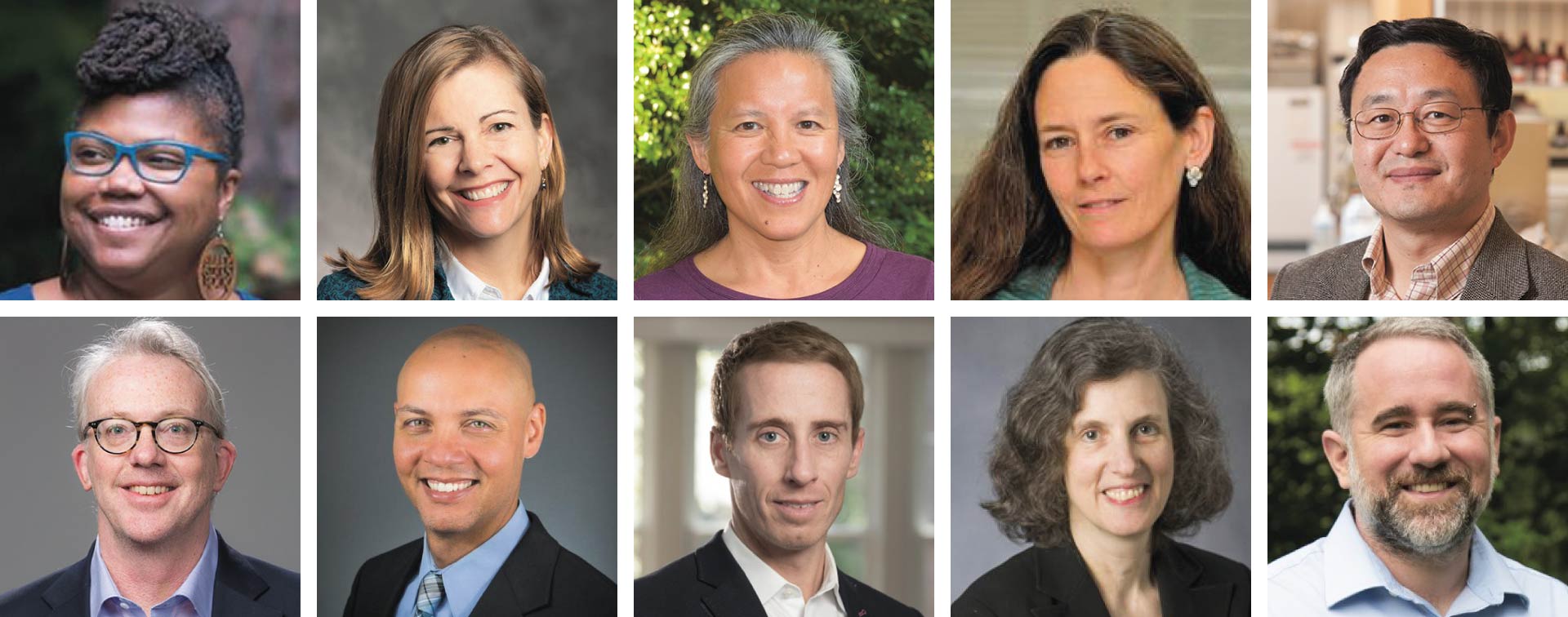
After panel discussions with faculty fellows, the class of 150 broke into smaller conversation groups. Some students arrived with the sense that climate change hadn’t touched them yet, only to realize at least one person in their group – whatever group they were in – had not been so lucky.
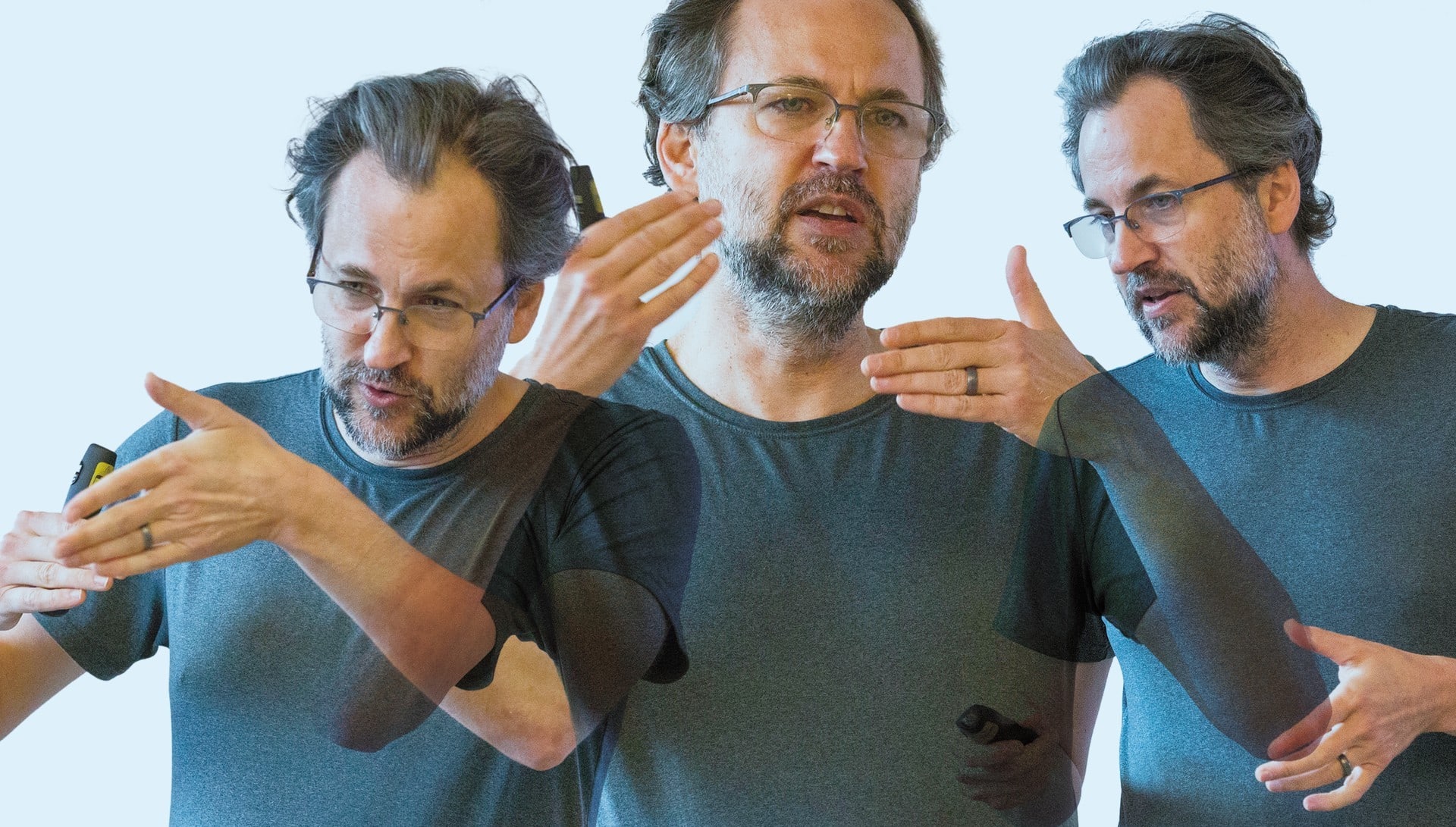
“We had a student from Pakistan whose family had issues with the floods that happened during the course,” said Bernhardt. “We had a number of people whose families had been in New Orleans.”
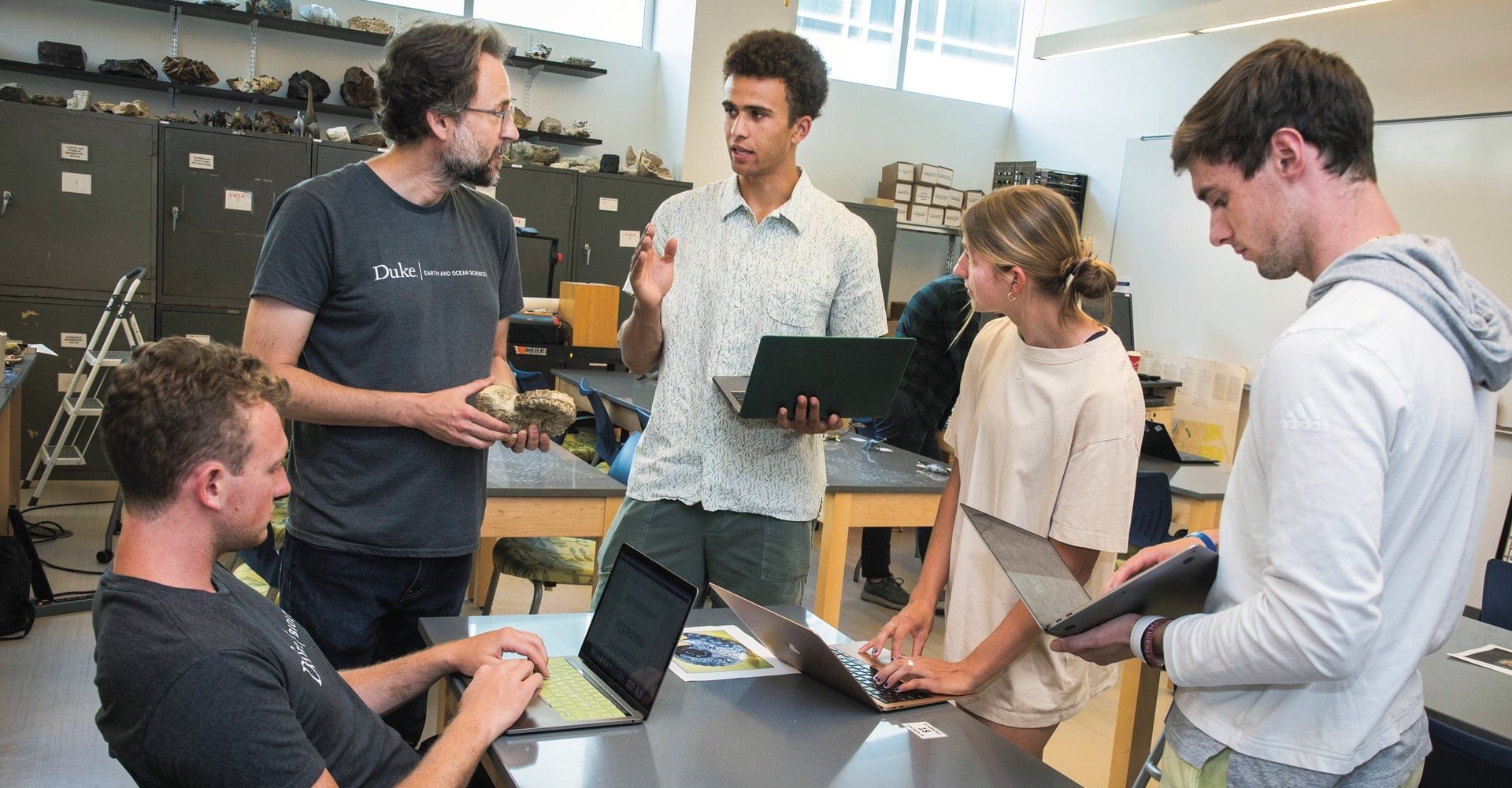
The scientific answer to climate change is simple, said faculty fellow Alex Glass, a geologist who specializes in communicating scientific concepts of climate change and evolution in an environment of controversy: If we want to slow it down, we must stop human greenhouse gas emissions.
“I think we understand it intellectually, but I don’t think we’ve internalized it yet,” Glass says. “We want to continue living this energy-heavy life, this resource-heavy life, because that makes us comfortable.”
Here, too, science and the humanities meet. Science tells us what is happening chemically, atmospherically, etc. The humanities tell us why humans do what they do. The course takes an ingenious approach, Glass said.
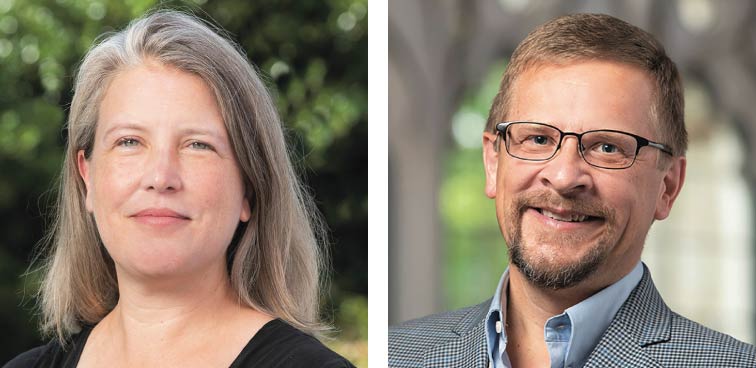
“[UNIV102] gave everyone a seat at the table of equal merit,” Glass says. “What this class really does well is it shows the diversity of how this issue is not just a scientific issue.”
UNIV102: Let’s Talk About Climate Change in fall 2022 followed on the heels of Duke’s inaugural university-wide course, UNIV101: The Invention and Consequences of Race, offered in fall 2021.
Cornes, for instance, leaned on her areas of expertise – agriculture and the humanities – and assigned Octavia Butler’s 1993 sci-fi novel “Parable of the Sower.” One of the book’s themes, she said, is agriculture as technology. Food systems are a major contributor to climate change, Cornes said, adding that, per the U.S. Department of Agriculture, 30 to 40 percent of the food supply in America is wasted. More thoughtful uses of simpler technologies, such as farming, could be a larger part of our climate response, she continued.
The other theme, though, speaks to human nature – to today’s university students imagining a future they would want to live in.
THE DUKE CLIMATE COMMITMENT is a university-wide, impact-oriented initiative to address the climate crisis by creating sustainable and equitable solutions that place society on the path toward a resilient, flourishing, carbon-neutral world. Through education, research, external engagement and campus operations, the Duke Climate Commitment seeks to imagine, design and implement a sustainable future for all. For more info: https://climate.duke.edu
“[‘Parable of the Sower’] really focuses on what happens after the apocalyptic event, and how do people continue on?” Cornes said. “How do they build and imagine new futures for themselves?”
Wirzba and Bernhardt see something of the future in the outcomes of the first UNIV102 section. They introduced faculty from across the university to each other – faculty who now want to collaborate. And students have told Wirzba that even though they are not going into science or engineering, they now see the role they can play, whatever their path. “We understand the problem [of climate change] even better. It’s even more complex than we thought. It’s moving even faster than we predicted. The message has to become more than that,” Wirzba said. “Connecting the imagining to the explanation is part of the work that needs to
be done.”
LEARN MORE about Duke’s faculty-led Climate and Sustainability Summer Institute for early to mid-career professionals seeking knowledge about climate science. It’s held in Washington, D.C. in July. https://learnmore.duke.edu/program/climate-and-sustainability-summer-institute
